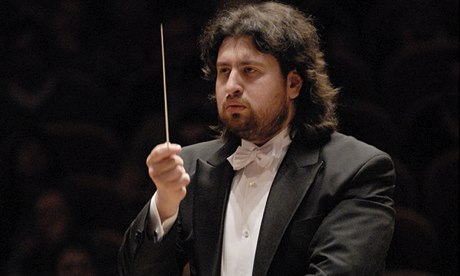
Glorying in a name that seems to have been chosen by a very large committee, the Moscow City Symphony-Russian Philharmonic is a smart modern orchestra based in the city's glitzy modern concert hall. Judging by its London debut, however, it is old-school where it counts.
Its chief conductor is Dmitri Jurowski, and his appearance meant there would be a Jurowski on the Festival Hall podium four times in a week; big brother Vladimir was in the audience to cheer him on. The programme was Russian and proud. Extracts from Prokofiev's ballet Cinderella immediately introduced a distinctive sound, soft-edged but hefty, with well-blended strings underpinned by weighty low woodwind; the rasp of the bass clarinet and contrabassoon were to become gratifyingly familiar sounds.
But not so much in Prokofiev's Third Piano Concerto, in which the orchestra seemed to be consciously ceding focus to Alexander Ghindin's piano playing. While Ghindin was all offhand, unfussy brilliance, the orchestra were neat and contained – except, that is, for the opening of the slow movement, when the flute phrasing made the melody sound positively flirty, and Ghindin responded in smooth, almost louche style. His encore, Rachmaninov's G minor Prelude, whizzed by in a flurry of sonorous chords, but the richness with which he brought out the secondary melodies in the middle section spoke of attention to detail worn lightly.
That was just a taster for the main Rachmaninov event – the colossus that is the Symphony No 2, approached by Jurowski with a certain lightness of touch and all the better for it. It was because he began the third movement so gently and at so flowing a pace that he was able to make such an impact with the sense of stillness after its climax. The second movement was crisp, the finale buoyant – and the encore, the Infernal Dance from Stravinsky's Firebird, was a flamboyant signoff from an orchestra confident of hitting its mark.
• Did you catch this show – or any other recently? Tell us about it using #gdnreview

